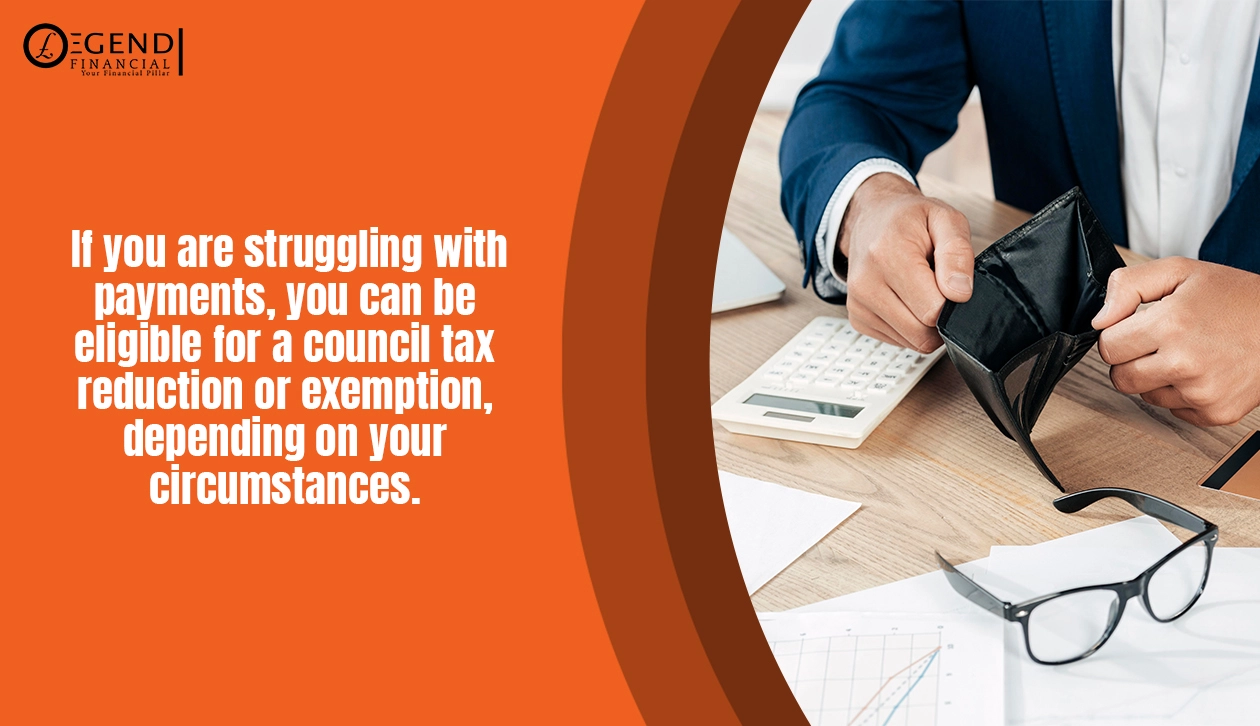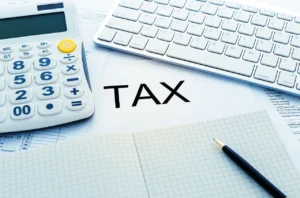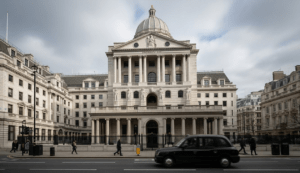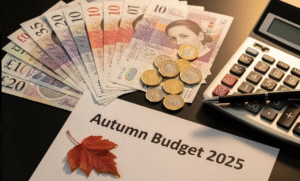Whether you are a first-time homeowner or a long-term renter, chances are you have heard of the phrase ‘council tax’. But what is council tax exactly, and how does it impact your household budget? This guide breaks down the complexities of council tax bands and will give you clear instructions on how to manage your payments. We will also explore potential reductions and exemptions, making sure you understand your full rights and responsibilities. Let us make it simple.
What is Council Tax?
Council Tax is a local taxation system in the UK that applies to residential properties. If you own or rent a home, you are responsible for making council tax payments to your local billing authority. This tax funds essential local services such as waste collection, policing, fire services, and public infrastructure.

Who is Liable to Pay Council Tax?
If you are over 18 and live in a property, you are responsible for paying council tax. The liability follows a hierarchy, starting with the homeowner or tenant. If multiple adults share a property, the responsibility is joint.
For rental properties, if you are a tenant, council tax is usually your responsibility unless your tenancy agreement states otherwise.
If a property is unoccupied due to probate or significant renovation, it may be eligible for a tax rebate or exemption. We will discuss more on that later in the article.
Property Changes and Council Tax
When moving to a new home, it is your responsibility to notify both your current and new local councils. This prevents any outstanding charges and ensures accurate billing.
Furthermore, if your property undergoes substantial changes, such as an extension, demolition, or conversion, you must inform the Valuation Office Agency (VOA). The VOA will reassess your council tax band, which could either increase or decrease your tax bill.
Difference Between Rates and Council Tax
Rates and council tax both fall under the broader taxation system, but they serve different purposes. Council tax applies to residential properties, whereas business rates (also known as non-domestic rates) apply to commercial properties. The valuation of council tax is based on property bands, whereas business rates use rateable values set by the VOA.
Council Tax Bands and Valuation
Every residential property in the UK is assigned a council tax band based on its valuation. The VOA determines these bands, which range from Band A (lowest) to Band H (highest) in England and Scotland. The higher the band, the more you will pay in council tax. Its amount depends on your local council’s tax rate, which varies by area.
How Council Tax Bands Are Determined
Council tax bands are based on the market value of your property as of 1 April 1991 in England and Scotland. The VOA uses historical data and property characteristics to assign a band. Factors considered include:
- Property size and layout
- Location and surrounding area
- Comparable property values in 1991
If you think your property has been misclassified, you can request a review. However, do this cautiously, as your appeal could result in a band increase, leading to higher council tax payments instead of a reduction.
Houses in Multiple Occupation (HMOs) and Council Tax
If you live in a House in Multiple Occupation (HMO), the council tax liability differs from standard arrangements. In most cases, the landlord is responsible for council tax payments rather than individual tenants. An HMO is classified as a property rented by at least three people from different households who share common facilities such as a kitchen or bathroom.
Certain exemptions and reductions may apply, depending on tenant circumstances. For example, if all tenants are full-time students, the property is exempt from council tax. If you live in an HMO and receive a council tax bill, verify whether your landlord should be responsible before making any payments.
Council Tax Rates 2024/25: The 4.99% Cap
In England, a 4.99% cap has been in place for the last three years. This cap includes a 2% increase specifically for adult social care. This means that, generally, your council tax bill cannot rise by more than 4.99% in a given year.
Usually, if a local council wishes to increase council tax beyond this 4.99% cap, they must hold a local referendum. However, the central government retains the power to authorise higher increases in exceptional circumstances.
How Much is Council Tax a Month?
This is a common question, but there’s no single answer. Your monthly payment depends on:
- Your council tax band.
- Your local council’s rates.
- Any applicable discounts or exemptions.
Whilst the 4.99% cap provides some predictability, the financial pressures on councils suggest that council tax will likely continue to rise in the coming years. To understand your specific bill, check your local council’s website. Stay informed about your council’s budget plans and financial situation.
Council Tax Payment and Methods
Council tax is paid in monthly instalments, usually spread over 10 or 12 months of the financial year (April to March). Many councils offer the option of 12 monthly payments to help spread the cost. Your local billing authority (the council) will provide details of the available payment options.
The most common options for council tax payment include:
- Direct Debit: The easiest and most popular method, allowing automatic monthly payments from your bank account.
- Online Payments: Most councils provide a secure online portal where you can pay using a debit or credit card.
- Telephone Payments: You can make payments over the phone through your local council’s automated system or customer service.
- Bank Transfers and Standing Orders: You can set up a recurring payment through your bank to ensure timely payments.
- Paying at the Post Office or PayPoint Locations: Some councils allow cash or card payments at designated locations.
- Cheque or Postal Order: Though less common, some councils accept payment via cheque sent by post.
Council Tax Reductions, Exemptions & Schemes
Council tax reductions offer relief to families whilst allowing them to save for rainy days. Here are some of the key reductions and exemptions available:
- Single-Person Discount: If you are the sole adult (aged 18 or over) living in a property, you are entitled to a 25% discount on your council tax bill.
- Disabled Band Reduction: If a disabled person resides in the property and essential adaptations have been made to meet their needs, you may qualify for a lower council tax band. This means your property will be taxed as if it were in a lower band, reducing the amount you owe.
- Council Tax Reduction (CTR) Schemes: Local councils offer means-tested CTR schemes to support low-income households. The level of discount depends on your household income and circumstances. These schemes replaced the former Council Tax Benefit, and universal credit is considered when determining eligibility.
Types of Exempt Properties
Certain properties are entirely exempt from council tax, either temporarily or indefinitely, depending on specific circumstances. These exemptions are designed to account for unoccupied properties, special living situations, and unique property uses.
Below are some of the most common types of exempt properties.
Unoccupied Properties:
- Condemned properties deemed unfit for habitation.
- Properties legally repossessed by a mortgage lender.
- Properties left unoccupied because the former occupant has moved into a hospital, care home, or a relative’s home for care.
- Properties left empty because the owner is caring for someone else elsewhere.
Student and Special Accommodation:
- Properties occupied only by full-time students or Foreign Language Assistants under the official British Council programme (e.g., halls of residence or shared student housing). If non-students live in the property, it is not exempt, but students are disregarded for tax purposes.
- Holiday caravans or boats located on a property where council tax is already paid.
Properties Occupied by Specific Groups:
- Homes where all residents are under 18.
- Properties occupied only by individuals with severe mental impairment.
- Self-contained annexes where the occupant is a dependent relative of the main property owner.
Owning a second home or investment property may have different tax obligations. Read our detailed guide on tax for second properties to stay informed.
Council Tax Support Schemes
Council tax support schemes help low-income households, pensioners, and vulnerable individuals reduce their council tax bills. These schemes vary by local authority, and eligibility depends on factors such as income, savings, and household circumstances.
Who Can Qualify?
You may be eligible for a council tax reduction if you:
- Receive benefits such as Universal Credit, Pension Credit, or Income Support.
- Have a low income and limited savings.
- Live with dependents or non-earning household members.
- Are disabled or care for someone with a disability.
How Much Support Can You Get?
The amount of reduction you receive depends on your local council’s scheme. In some cases, you could get a discount of up to 100%, meaning you pay no council tax at all.
How to Apply?
You can apply for a council tax reduction through your local council’s website. Supporting documents, such as proof of income and benefits, may be required.
If you are a landlord looking to manage tax on rental properties, check out our guide on how to reduce tax on rental income.
Council Tax Appeals and Challenges
If you believe your council tax bill is incorrect, you have the right to appeal. There are several reasons to challenge your council tax assessment, including being placed in the wrong council tax band, being billed incorrectly, or being denied a reduction or exemption you believe you qualify for.
Appealing Your Council Tax Band
If you think your property has been placed in the wrong band, you can request a review from the Valuation Office Agency (VOA). If they reject your request, you can escalate the appeal to an independent tribunal.
Challenging a Billing Error
If you notice mistakes on your bill, such as incorrect charges or missing discounts, contact your local council immediately. They are required to investigate and correct errors promptly.
Disputing Liability or Exemptions
If you believe you should not be responsible for the council tax charge or that you qualify for an exemption, you can challenge the decision with your council. If they refuse to amend it, you may take the case to the Valuation Tribunal for further review.
Appeals must be based on solid evidence, and deadlines apply, so act quickly if you suspect an error. Always communicate with your local authority first, as many disputes can be resolved without formal appeals.
Council Tax in Scotland
Council tax in Scotland operates differently from the system in England and Wales, with its own banding, exemptions, and reduction schemes.
Properties in Scotland are placed into one of eight bands (A to H), based on their estimated value since April 1, 1991. Unlike in England, there has been no official revaluation of property bands since then.
Scotland has its own Council Tax Reduction (CTR) scheme, which provides financial relief to low-income households. Eligibility is based on income, savings, and circumstances.
Exemptions and Discounts
In addition to standard UK-wide exemptions (such as student exemptions and discounts for single occupants), Scotland offers specific council tax reliefs, including:
- Second Home and Empty Property Charges: Unlike in England, councils in Scotland can apply a premium or discount on second homes and unoccupied properties.
- Water and Sewerage Charges: Council tax bills in Scotland include water and sewerage charges from Scottish Water, which are separate from the tax itself.
FAQs About Council Tax
You can check your eligibility through your local council’s website. Common reductions include single-person discounts, disability-related reductions, and low-income support schemes. Some properties, such as student housing or unoccupied properties under specific conditions, may also be exempt.
If you think your property is in the wrong council tax band, you can request a review from the Valuation Office Agency (VOA). If they reject your claim, you can appeal to an independent tribunal.
Yes, councils may raise tax rates due to inflation and increased local service costs. These changes are usually announced between February and March, before the new financial year in April.
If you miss a payment, your council will send a reminder. If you fail to pay after multiple warnings, legal action may be taken, and you could incur additional charges. Contact your local council immediately if you are struggling to pay.
Most councils offer Direct Debit, online payments, telephone payments, and bank transfers. You can change your payment method by contacting your local authority or updating your details via their online portal.
Optimise Your Council Tax with Expert Guidance
Understanding what is council tax is essential for managing your monthly budget effectively. At Legend Financial, our expert tax planners provide the best guidance to help you optimise your overall tax strategy. Whether you need assistance with reductions, exemptions, or appeals, we have got you covered.



![What is Council Tax? [2025 Guide]](https://legendfinancial.co.uk/wp-content/uploads/2023/09/LF-Blog-33-CR250210LF-ft-1-1024x618.webp)






